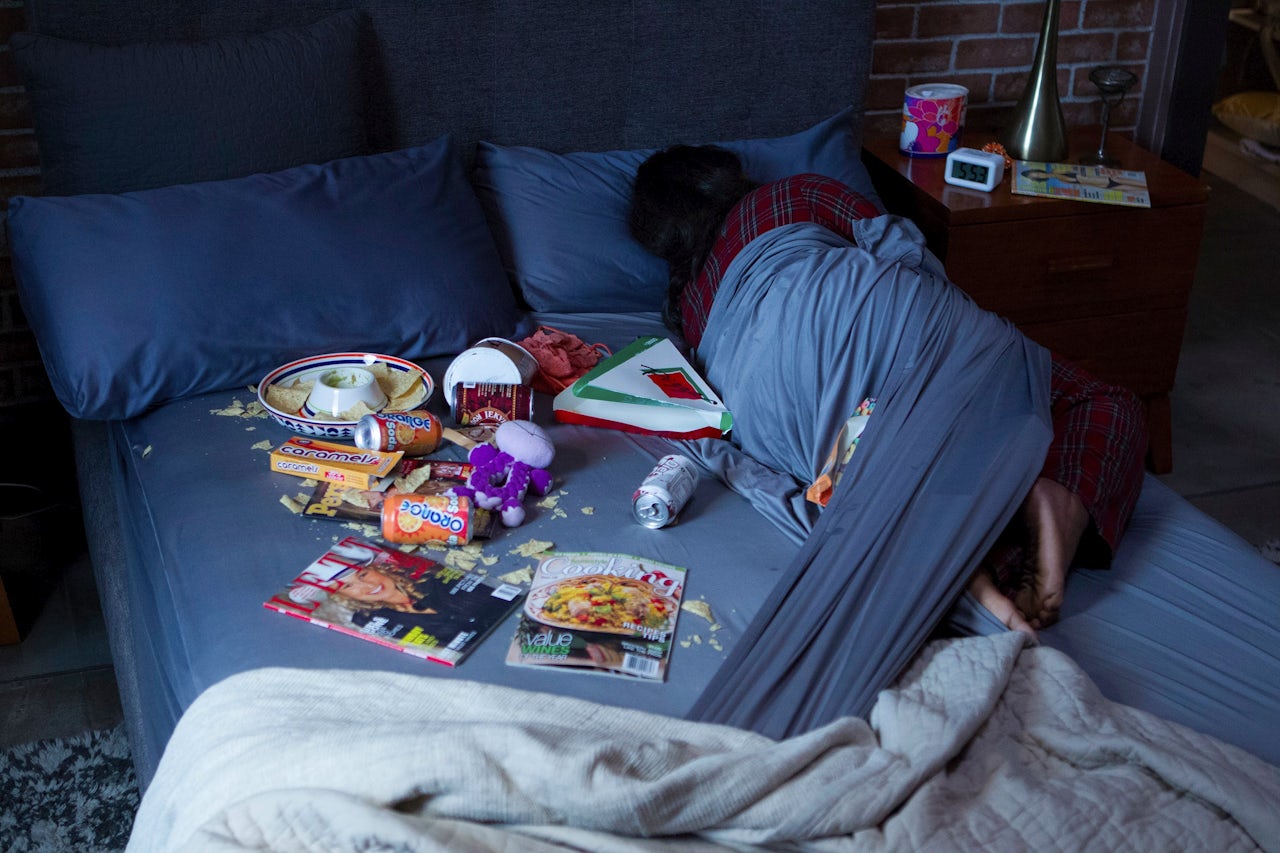On most mornings, Ebon, an 18-year-old from North Carolina, wakes up and then goes back to sleep. And it’s not because he’s tired. “I think about things that I shouldn’t before I can even start my day and it produces this mindset that nothing will ever work out, so here comes a depression nap,” he told The Outline. On a Monday last month, he tweeted about it on his popular account, @abstractnights:
*wakes up, wanders aimlessly around the house knowing i have no plans and waits until it's close to 1pm to take my depression nap*
— ebon (@abstractnights) June 26, 2017
He’s not alone. His post was retweeted 100 times, and a simple Twitter search for the phrase “depression nap,” newly meme-ified, yields thousands of results. Mic, a 20-year-old college student from New York, explained the phenomenon as “when you physically can’t do anything but sleep.” She added, “You [only] have so much time in the day and no energy to really do anything.”
For Ebon, the naps serve as an escape. “[It] has become some sort of elixir to stop me from doing something I might regret,” he said. “Often when I’m alone and have a lot of time on my hands, I get inside of my head too much. So in order for me to stop it, I sleep it off so I don’t reach back into destructive behavior.”
Sleep can indeed be an effective coping mechanism for people to escape their current reality, said licensed clinical social worker Abbie Zimmerman. After all, it makes sense to deal with one’s problems using avoidance rather than exerting the often exhausting emotional labor it takes to try to fix them.
me: i have so much energy im gonna fix everything in my life
— one of ur hoes (@miliondollameat) November 17, 2016
me: time for ur depression nap b pic.twitter.com/uACvDwFk9L
For a cohort more educated and community-oriented than previous generations, millennials are also more stressed out, anxious, and depressed. And in a society that often stigmatizes conversations about mental illness and treatment, social media is a refuge for young people seeking a space to express their shared experiences.
As Hannah Woodhead wrote in a recent BuzzFeed essay about online friendship, finding community on social media can be powerful. "I’ve grown close to people online because there, I’m not afraid to say how I feel, and ironically, I’ve become more able to vocalise my anxieties offline in the process,” she wrote.
when you take a depression nap but you still wake up depressed pic.twitter.com/NeLYJIP7yp
— jesus is my boyfrien (@yungeateat) June 6, 2017
One tweet, by the user @yungeateat, is an apt example of how conversations about the concept of depression naps are taking place online. The tweet, which reads “when you take a depression nap but you still wake up depressed,” is accompanied by an image of a grumpy Homer Simpson. Similar sentiments are tweeted in all kinds of formats — using Evil Kermit, for example — but the message is clear enough: People are using naps to deal with certain stressors.
However, there is a big difference between depression-like symptoms and actually having the illness. “Often times people will sleep throughout the day for long periods of time beyond what is normal because they had jet lag, a late night or a hard day,” Zimmerman said. “It’s very different than someone having major depressive episodes lasting a week or more where you’re consistently sleeping like that every day.”
“People are glorifying mental illness just to make a relatable tweet.” — Mic
The Diagnostic and Statistical Manual of Mental Disorders lists change in sleep such as insomnia (inability to sleep) and hypersomnia (excessive sleeping) as a major symptom of the illness. But the conflation of depression-like symptoms with actually having depression often minimizes the seriousness of what it really means to have the illness, according to Zimmerman. “[People] might have some periods that might be more symptomatic of whatever’s going on in their life. Like bereavement, for example.”
Mic, who tweets as @loopzoop, frequently talks about her hypersomnia online. Her candidness has resonated with followers experiencing the same condition, despite the not-so-serious tone she uses. Still, as Mic pointed out, while joking about depression can help mitigate its impacts, there is a risk of flattening its seriousness in the process. “It’s good there are communities out there people can reach out to. It’s not always pretty and it’s not glamorous in the way corporations and shows portray,” she said. “I feel bad people have to share this misery with me but I also feel good in a way that I’m providing an outlet for people to discuss what they have going on and not feel like they have to hide it.”
“People are glorifying mental illness just to make a relatable tweet,” Mic said. She has a point. Social media often feels like a race for likes and shares with little regard paid to the implicit messages in posts. Ebon agreed, adding that talking about mental illness is something to be done delicately and honestly by those not experiencing it. “I understand some people use their mental illness as a joke to cope,” he said. “[But] mental illnesses aren’t a joke.”
